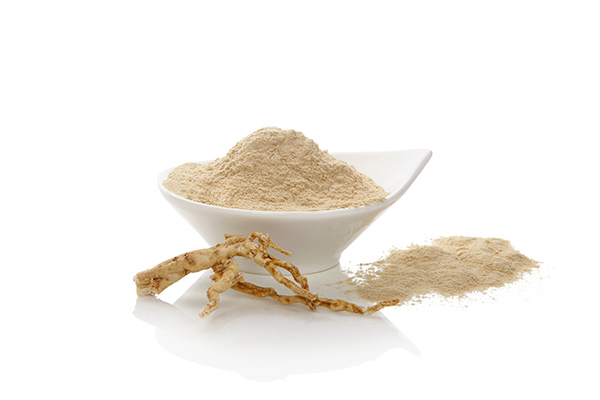-
Home > News & Events > Blog > Human Health
Protein is an important raw material for building and repairing the body, and is an important component of human tissue. It not only plays an important role in the growth and development of the human body, the repair of damaged cells, and the formation of antibodies, but also can be broken down to provide energy and maintain various life activities. At the same time, protein can also affect the human body's ability to move, and the body's need for protein is proportional to the amount of exercise. Different sports require different amounts of protein. Adequate protein supplementation promotes skeletal muscle protein synthesis, but excessive protein intake can also be harmful to the body.
Digestion rate and influence of protein
Researchers have defined the concepts of "slow" and "fast" digesting proteins based on the speed at which proteins are digested and amino acids are absorbed in the intestine. For example, in a study on the effects of whey protein and casein protein on protein metabolism in healthy adults, a higher, rapid, and short-lived peak in plasma amino acid levels was observed with the former, which was related to a significant increase in protein synthesis, but there was no significant change in protein breakdown rate. In contrast, the latter had lower plasma amino acid levels, slower rise, longer duration, and a slight increase in whole-body metabolic response including protein synthesis, but the protein breakdown response was significantly suppressed. Based on the speed and duration of amino acid appearance in plasma, whey protein can be classified as a fast-digesting protein, while casein protein can be classified as a slow-digesting protein.
The rate of protein digestion is an independent factor in regulating postprandial protein breakdown or synthesis. In a study of young men, slow-digesting casein was found to induce protein synthesis more effectively than fast-digesting whey protein. This difference is due to the different rates of protein digestion. Whey protein accelerates amino acid oxidation and protein synthesis, but does not affect protein hydrolysis, while casein, although it increases amino acid oxidation and protein synthesis to a lesser extent, strongly inhibits protein hydrolysis.
The absorption rate of dietary amino acids in the intestine varies depending on the type of protein ingested. Therefore, slow-digesting proteins and fast-digesting proteins have different regulatory effects on whole-body protein metabolism. This difference is mainly due to the speed of gastric emptying - different proteins produce peptides during digestion that can bind to specific receptors on the small intestine, slowing down gastrointestinal motility and delaying gastric emptying.
In general, there is considerable controversy regarding the effects and mechanisms of different protein intake on protein metabolism, which may be related to the age and physiological status of the subjects. However, the description of the definition and characteristics of fast and slow proteins is consistent. Fast-digesting proteins seem to have an advantage in promoting protein synthesis, while slow-digesting proteins are better at inhibiting self-protein breakdown.
Yeast protein also belongs to slow-digesting protein, the principle of which is that it contains a certain amount of immune polysaccharides - yeast beta-glucan. Yeast beta-glucan may briefly bind with gastric and intestinal proteases to form a complex, which delays the breakdown of yeast protein to a certain extent. It should be noted that slow digestion of yeast protein does not mean low digestion rate. Studies have shown that the overall digestion rate of yeast protein and soy protein is comparable, slightly lower than that of whey protein, but there is no significant difference in their absorption rates.
Applications
1. Sports and Fitness
The amount of protein required for an average person to maintain nitrogen balance is about 0.8g/kg per day, while athletes require a protein intake of 1.2-1.7 g/kg per day. Athletes require a higher amount of protein intake compared to an average person mainly due to the following four reasons: first, athletes have a higher proportion of fat free mass; second, intense exercise can lead to more protein loss in urine; third, during training, amino acids from protein provide 5-15% of energy, and when muscle glycogen consumption increases, protein energy supply will also increase; fourth, exercise can cause muscle damage, and repairing damaged tissue requires more protein.
For athletes, it is important to supplement adequate protein, but when to supplement protein, what type of protein to supplement, and its hydrolysates are more important. Ingesting proteins with high digestion rates can promote body protein synthesis, while ingesting proteins with low digestion rates can reduce body protein hydrolysis efficiency. Whey protein is a protein with a high digestion rate, which can cause amino acid levels to rise rapidly. Compared with soy protein or casein protein alone, ingesting whey protein after exercise has a more significant effect on promoting muscle synthesis. However, the increase in amino acid levels caused by whey protein is short-lived, and the concentration of essential amino acid release in peripheral blood can reach its maximum value 30 minutes after ingesting whey protein, but it will return to a resting state after 3 hours. Supplementing slow-digesting yeast protein may not promote protein synthesis in the short term, but it can inhibit protein breakdown.
Therefore, if a mixed protein containing multiple digestion rates can be ingested after exercise, it can shorten the muscle protein synthesis time of the entire recovery period after exercise, which is beneficial for muscle recovery. Especially in endurance sports, the proportion of protein energy supply will increase with the consumption of muscle glycogen in the body, and protein breakdown metabolism will be strengthened. Adequate protein can prevent central fatigue; during exercise, protein synthesis and breakdown metabolism are in dynamic changes, insulin and testosterone concentrations in the blood decrease, protein breakdown metabolism increases, and it is particularly necessary to supplement slowly digestible protein appropriately.
2. Auxiliary treatment or prevention of diseases
Selective increase of protein synthesis and inhibition of protein breakdown based on different digestive characteristics between proteins may provide direction and possibility for the treatment of some diseases. The biggest nutritional goal for patients with sepsis, extensive burns, acquired immunodeficiency syndrome, malignant tumors, bone trauma, or multiple organ failure is to minimize the loss of body protein. By taking specific proteins to slow down or even reverse the breakdown metabolism of body protein, this nutritional support has potential value for the treatment of critically ill patients. In addition, some special populations cannot tolerate high concentrations of amino acids in plasma, such as patients with renal insufficiency or hepatic encephalopathy, and can use slowly digested proteins to ensure nutritional needs while avoiding harm to the body.
| Published by Chen Zhixian Senior Engineer of Nutrition and Health Division |
About Angel Human Health:
Specialized in yeast and fermentation, AHH is committed to developing innovative, differentiated, science-based functional ingredients and customized solutions, to help our customers get enduring success, as well as contribute to a healthier and sustainable world together.
About Angel:
Angel Yeast Company is a high-tech listed company specializing in yeast and biotech. Product business covers Yeast and Baking, Yeast Extract-Savoury, Nutrition & Health and Biotechnology fields. It is one of the world's leading companies in the yeast industry. Angel has 12 holding subsidiaries and provides products and services for more than 150 countries and regions.
Press Contact:
ANGEL YEAST CO., LTD
Address: 168 Chengdong Avenue, Yichang, Hubei 443003, P. R.China
Tel: +86 717 6369570
Email: Nutritech@angelyeast.com








